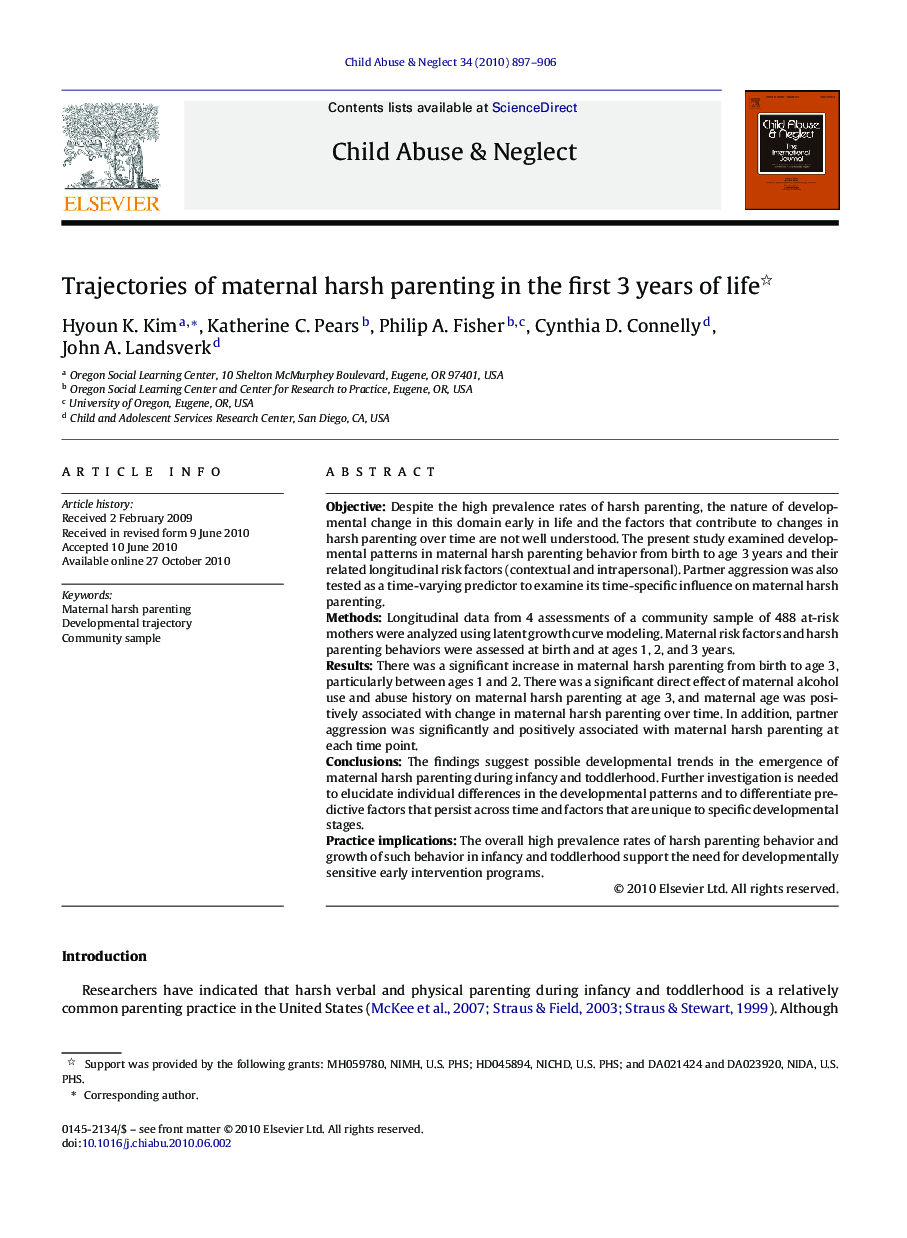| Article ID | Journal | Published Year | Pages | File Type |
|---|---|---|---|---|
| 344875 | Child Abuse & Neglect | 2010 | 10 Pages |
ObjectiveDespite the high prevalence rates of harsh parenting, the nature of developmental change in this domain early in life and the factors that contribute to changes in harsh parenting over time are not well understood. The present study examined developmental patterns in maternal harsh parenting behavior from birth to age 3 years and their related longitudinal risk factors (contextual and intrapersonal). Partner aggression was also tested as a time-varying predictor to examine its time-specific influence on maternal harsh parenting.MethodsLongitudinal data from 4 assessments of a community sample of 488 at-risk mothers were analyzed using latent growth curve modeling. Maternal risk factors and harsh parenting behaviors were assessed at birth and at ages 1, 2, and 3 years.ResultsThere was a significant increase in maternal harsh parenting from birth to age 3, particularly between ages 1 and 2. There was a significant direct effect of maternal alcohol use and abuse history on maternal harsh parenting at age 3, and maternal age was positively associated with change in maternal harsh parenting over time. In addition, partner aggression was significantly and positively associated with maternal harsh parenting at each time point.ConclusionsThe findings suggest possible developmental trends in the emergence of maternal harsh parenting during infancy and toddlerhood. Further investigation is needed to elucidate individual differences in the developmental patterns and to differentiate predictive factors that persist across time and factors that are unique to specific developmental stages.Practice implicationsThe overall high prevalence rates of harsh parenting behavior and growth of such behavior in infancy and toddlerhood support the need for developmentally sensitive early intervention programs.
